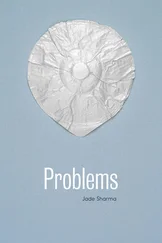"Mr. Karan, I am relying on you now," Mr. Gupta declared. "You will have to help me." He looked in my eyes when he said this. I think Mr. Gupta hoped to have some jocularity in his voice, but the statement sounded serious and made him appear desperate.
"How much money did they find?"
Mr. Tuli answered, "Eight lakhs. Five in cash. Three in bankbooks." Mr. Gupta grimaced at the lost sum. This was vastly more than I had expected. It was equivalent to selling a school. Mr. Gupta's campaign must be so confused that at night people couldn't tell what had happened during the day I wondered whether the BJP might abandon the campaign. An ordinary candidate, even one who lost, was better than no candidate, but a bad candidate, one that harmed the BJP's reputation, was worse than no candidate.
"How much do you think you can raise?" Mr. Tuli asked. I under-
stood the answer would affect how much effort the BJP was willing to put into the campaign.
"I have enough money already to win this campaign," I said, and thought that if Mr. Gupta was relying on me to save him, it was time to leave Mr. Gupta.
"Bring the money," Mr. Gupta said.
Late morning the next day, I went to the many banks in which I had stored the bribes and withdrew twelve lakhs, about half the money I had accumulated. Anita had confirmed my belief that I should turn over only part of what I had raised. As I carried the bundles of rupees in the rubber briefcase Mr. Mittal had given me, I realized that since last night I had begun thinking of the money as more mine than Mr. Gupta's.
The boy who parked cars jumped up and saluted me from where he was sitting in the dirt eating roti and subji off a leaf plate. Again Mr. Gupta's tall yellow house was silent. The silence made the building appear to be waiting.
Mr. Gupta was busy, I learned. He had spoken at a cow-retirement farm in the morning and was meeting the student-body president of Delhi University in the afternoon.
I held out the money as Mr. Gupta changed into a fresh kurta pajama in a room on the second floor. When they are introduced, vast amounts of money always arrest whatever is going on. Mr. Gupta stopped buttoning his kurta. He put the briefcase on his dresser, opened it, took out several bundles and put them on the dresser, thought better of it, and returned them to the briefcase. He then hugged me tightly, emotionally. In the middle of the hug he asked, "Is this all we have?"
"No."
Mr. Gupta looked at me, as if waiting for me to reveal how much we had, but when I did not, he did not ask. This made me think the situation was even more dire than I had thought. Many of the rooms
in his home were used at times as office space, and the room we were in, which had been a bedroom, had several folding tables with pamphlets and papers scattered on them. The interim nature of the room made me sense Mr. Gupta's vulnerability. I had to find a way to buy protection from the BJP and Congress.
The idea of ruining Mr. Gupta did not horrify me, for I was certain he would do the same to me if necessary. But I felt sad at his helplessness. Mr. Gupta started dressing himself again.
"The BJP is robbing me," he said. "All the posters and vans are hired through them. How much should a single poster cost, from printing to up on a wall?"
"Twenty, thirty rupees."
"One hundred and forty, the BJP says. A poster on plain thin paper. And then because I want more posters than the BJP put up, because I can't afford their price, I have to lie and go around them and hire people on my own. I had to buy a minimum of ten thousand posters from the BJP." I wondered whether Mr. Gupta thought that revealing his exploitation would somehow make me be kinder to him. Since the campaign started, perhaps to win people's affection, Mr. Gupta had begun talking about his feelings. Because of the problems that always beset him, this openness made him appear complaining, distracted, and lost. "They were supposed to give me two generators. Why do I have one?" Having finished dressing, Mr. Gupta said, "Come tonight at about eleven and we'll drink tea."
I imagined Mr. Gupta had made the invitation because he wanted to shore up our relationship.
The oddity of tea at such a late hour, however, was so great that Anita said she would stay awake and wait for me to return home and tell her about it. I watched the news before leaving for Model Town; the tax raid was mentioned only briefly.
I arrived at the requested time, but Mr. Gupta was away at a dinner. My headache from yesterday was still periodically clamping my skull. It had enervated me and I fell asleep in a chair waiting for him. I was awakened when he arrived a little after twelve-thirty, and I had tea with him. All I remember from the meeting was
that the more he tried charming me, the more anxious I became.
"Something has to be done," Anita said when I described this.
"What?" We were in the common room and I was holding a glass of water.
"You have to take care of us." I wondered if she was encouraging me to find a way to abandon Mr. Gupta. "He's nobody's friend."
"If this scandal dies, then things can go on."
Anita stared in dissatisfaction at my answer. I finished the glass of water and then went to get one more.
When I returned, she asked, "Do you have crops to irrigate that you want so much water?"
I wondered how Anita's anger would get deflected when I had nothing to confess every night.
I did not see Mr. Gupta the next day, because even though I believed it was correct to betray him, the actual misery this would create was too much to imagine and I did not want to see the person I would hurt. At night he phoned, and when I said hello, he said, "You didn't come by"
"I am sorry. I was busy all day."
"Ajay is still not home."
"He's probably ashamed and hiding."
Mr. Gupta was silent for a minute. "He should be hiding from me, but he would have contacted his mother if he was all right."
This made sense, although I didn't say so.
"His mother is having a prayer for him tomorrow morning. Come and bring your family. It'll make his mother feel better if a lot of people are praying."
I asked Anita if she wanted to come and she immediately agreed.
The pockets of the boy who parked cars were bulging with keys. A calf that must have wandered in off the street was being shoved out of Mr. Gupta's courtyard. The eucalyptus trees that had been torn to feed the elephants appeared ravaged.
"This is not such a nice house," Anita said when we arrived in an
autorickshaw. I had forgotten that during her life with Rajinder Anita had seen many things and people I knew nothing about. "Maybe that's why he's running for Parliament."
"It's across from a park," I said.
The prayer was held in the large room in the back of the house where Ajay had tried to get me drunk in order to get the shawl. A pundit on a thick cotton mat beneath a window was singing, and a crowd of women and a few men listened seated on bamboo mats. An air conditioner and a ceiling fan whirred, and I wondered whether this was the only room that the generator's electricity was being directed to. Along a wall opposite the pundit were several wooden chairs, on two of which sat Mrs. Gupta and Pavan. Mrs. Gupta was short and fat, and this made Pavan's beauty more distinctive.
We had been led to the prayer by a servant. While I stood deciding where on the floor to sit, Mr. Gupta came in through another door, examined the room for a minute, and left. "Like a mill owner looking at his workers on the factory floor," Anita said, and moved to the chairs. She sat down beside Pavan.
"My daughter Anita. The poor girl is a widow and lives with me." I told them this so that they might treat her with the deference due to a widow. But at my words, one of Pavan's hands rose into the air as if warding something off
Читать дальше












